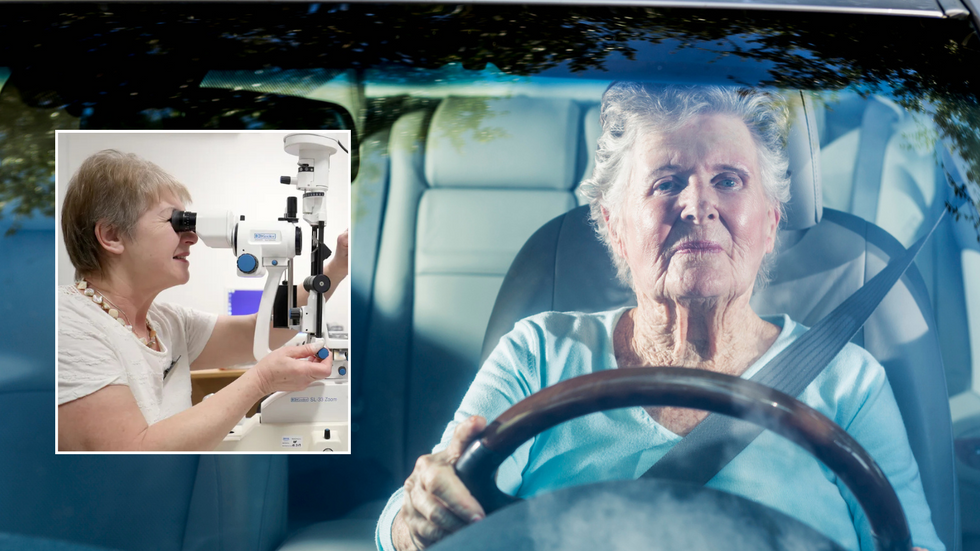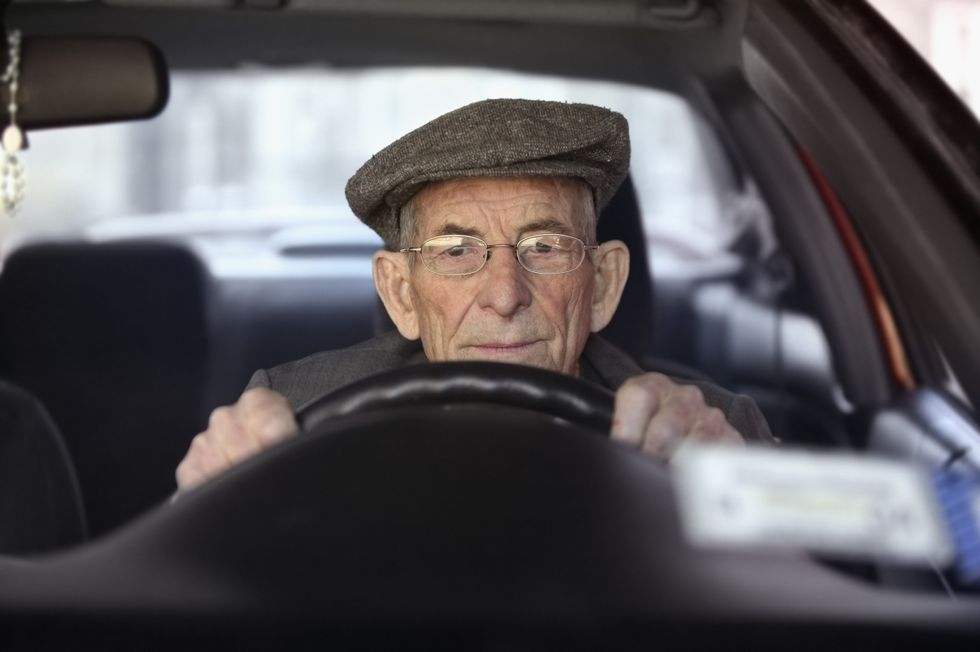WATCH: Stanley Johnson says regular driving tests for the elderly is 'discrimination'
GB NEWS
The Association of Optometrists has called for regular eyesight tests for drivers over 70
Don't Miss
Most Read
Trending on GB News
The number of elderly drivers on UK roads has doubled over the past decade, with experts calling for mandatory eyesight tests to ensure motorists remain safe while travelling.
Current regulations require drivers to self-certify their fitness to drive when renewing their licence, which occurs every three years for those over 70.
But road safety campaigners have argued that this system is inadequate, with the Association of Optometrists (AOP) lobbying for legal requirements to have vision professionally checked at licence renewal.
The issue has gained attention following several high-profile incidents involving elderly drivers with impaired vision, which have resulted in fatal consequences in some cases.
Do you have a story you'd like to share? Get in touch by emailingmotoring@gbnews.uk

Reports found that elderly drivers are twice as likely to cause an incident on UK roads than any other age group
GETTY/PA
Under current rules, drivers are only required to read a number plate from 20 metres when they first take their test, with no further mandatory checks throughout their driving career.
The AOP has campaigned for a change in law to require vision checks when drivers first apply for a licence and at renewal times.
"At the moment, it's just a tick box exercise and there will always be some individuals who say their vision is OK when it is not," said road safety advocate at the group Emma Damen.
For most drivers, licence renewal occurs every 10 years, but those over 70 must renew every three years, still relying on self-certification rather than professional assessment.
The tragic case of Jim Tassell highlighted the devastating consequences of elderly drivers with poor vision remaining on the roads.
The 70-year-old cyclist was killed in 2021 after being struck by an 82-year-old motorist who could only see three metres ahead. Despite being informed by his optometrist that his eyesight was failing, the driver continued behind the wheel.
Research published in Ophthalmic Epidemiology in December 2024 found that any visual field loss increases the chances of being involved in a collision by 84 per cent.
The report found that drivers with severe visual field loss were nearly twice as likely to be involved in an accident, according to lead author Dr Siobhan Manners of The University of Western Australia.
The study analysed visual field test data recorded by ophthalmologists between 1990 and 2019 alongside vehicle collision data. Among drivers with binocular visual field loss who were involved in a collision, one in three accidents resulted in a fatality, hospitalisation or injury.
"This study has provided definitive evidence that some older adults with severe binocular visual field loss continue to drive, putting themselves and others at risk," Manners emphasised. Optometrists play a crucial role in having conversations with patients about vision and driving, particularly with elderly drivers.
"Driving is a really personal thing. Especially in rural areas, it's almost a lifeline for a lot of people," said optometrist and AOP Councillor Karan Vyas.
Despite the sensitivity of these discussions, Vyas stated that professionals shouldn't avoid them. "We do have to safeguard the greater public as well as the patient," he added.
LATEST DEVELOPMENTS:
 Elderly drivers have to renew their licence every three years once they reach 70 years of age GETTY
Elderly drivers have to renew their licence every three years once they reach 70 years of age GETTYProfessor Nick Rumney, owner of BBR Optometry, suggested making driving "one of the core questions" during sight tests. "Driving can be a little bit like turning over a stone – if you don't ask, you don't know," he explained.








